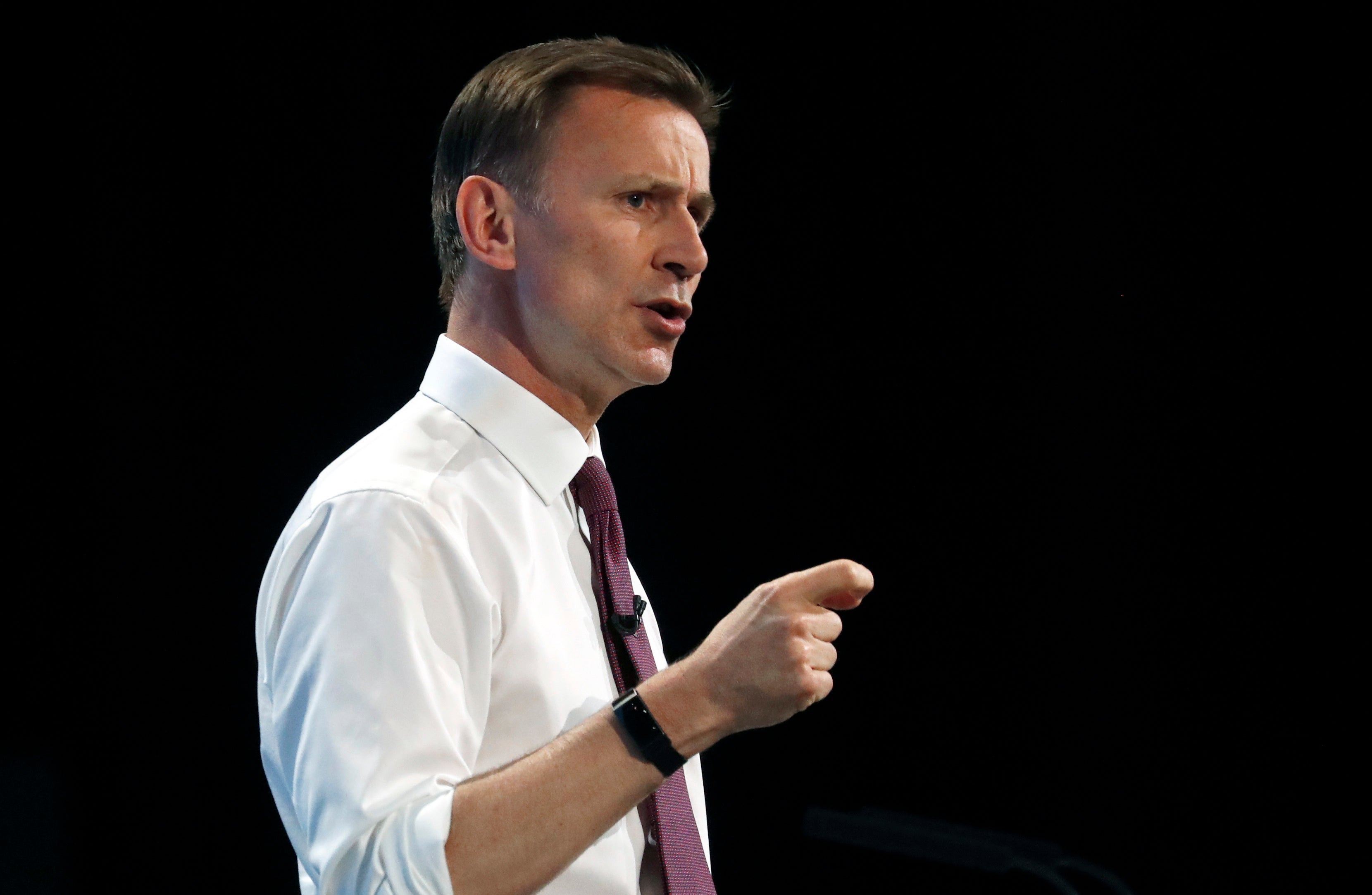Winners and losers from Jeremy Hunt’s mini-Budget U-turn
Chancellor announces measures he says will bring in £32bn a year for the Treasury
Your support helps us to tell the story
From reproductive rights to climate change to Big Tech, The Independent is on the ground when the story is developing. Whether it's investigating the financials of Elon Musk's pro-Trump PAC or producing our latest documentary, 'The A Word', which shines a light on the American women fighting for reproductive rights, we know how important it is to parse out the facts from the messaging.
At such a critical moment in US history, we need reporters on the ground. Your donation allows us to keep sending journalists to speak to both sides of the story.
The Independent is trusted by Americans across the entire political spectrum. And unlike many other quality news outlets, we choose not to lock Americans out of our reporting and analysis with paywalls. We believe quality journalism should be available to everyone, paid for by those who can afford it.
Your support makes all the difference.The new chancellor has dismantled Liz Truss's economic agenda as he sought to bring stability to the financial markets following weeks of turmoil caused by the mini-Budget.
In a rejection of Ms Truss's agenda, Mr Hunt announced he would scrap a planned cut to the basic rate of income tax in a bid to fill a £72bn black hole in the public finances.
He also pledged to scale down the energy bill support scheme from April, after which point the government will seek to help only those on lower incomes, as part of an overall package he said would raise £32bn a year for the Treasury.
It came after Ms Truss announced a U-turn on corporation tax at a less than convincing press conference on Friday, following her sacking of the former chancellor Kwasi Kwarteng.

The pound strengthened and the cost of government borrowing fell as the markets reacted positively to the new chancellor's reversal of the "growth plan" in an emergency statement on Monday morning.
Mr Hunt said the hike in national insurance contributions - already progressing through the Commons - will remain, as will the cut to stamp duty for people buying homes.
So who is set to benefit from the changes and who will lose out?
Cut to income tax
Millions of people who pay the basic rate of income tax of 20p will lose out on hundreds of pounds worth of savings as this measure is scrapped "indefinitely".
Ms Truss had planned to cut the top rate to 19p by April 2023, bringing forward former chancellor Rishi Sunak's pledge to do so by 2024.
Addressing the decision to hold the basic rate of income tax at 20p, Mr Hunt said: “It is a deeply held conservative value – a value that I share – that people should keep more of the money they earn.
“But at a time when markets are rightly demanding commitment to sustainable public finances it is not right to borrow to fund this tax cut.”
If the markets continue to react positively to the changes - and Mr Hunt's commitment to fiscal responsibility - then it could lead to interest rates coming down more quickly, leading to cheaper mortgage rates.
What about mortgages and rents?
Mortgage rates have rocketed in recent weeks amid the wider turmoil in the markets, although recent figures indicate there have already been signs of mortgage rates steadying over the weekend.
Monday's announcements could help to shore up market confidence, in turn helping to steady mortgage rates. The choice of mortgage products remains significantly lower than before the mini-Budget.
Bank of England base rate hikes have also been pushing up mortgage rates in recent months and further rises are expected.
Mortgage rate hikes also feed into the costs paid by buy-to-let landlords, which could mean some have to put their rents up or even sell up if letting is less profitable.
Supply shortages in the rental sector are already putting upward pressure on rents.
Nathan Emerson, CEO of Propertymark, which represents estate and letting agents, said: "Mortgage rates were already rising and we hope the wider announcements made today will translate into a settling down of that trajectory."
Simon Gammon, managing partner at Knight Frank Finance, said: "While we don't expect mortgage rates to fall in the short term, stability in the swaps market should slow the pace of rising mortgage rates relative to some of the worst case scenarios that looked possible in the days following the mini-budget.
"Only time will tell as to whether this is a temporary reprieve, however."
What about alcohol prices?
Plans to freeze alcohol duty rates from 1 February 2023 for a year have been ditched.
The Scotch Whisky Association said the move will add to pressures for the hospitality industry and household budgets as costs inevitably increase.
Emma McClarkin, chief executive of the British Beer and Pub Association said: "The chancellor's decision today to reverse the alcohol duty freeze is a huge blow to brewers and pubs."




Join our commenting forum
Join thought-provoking conversations, follow other Independent readers and see their replies
Comments